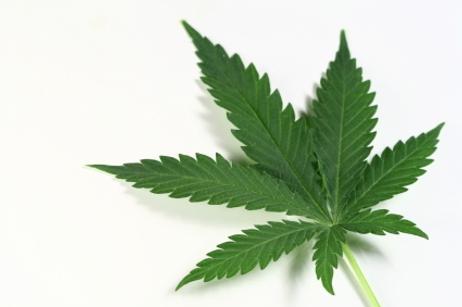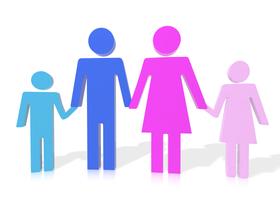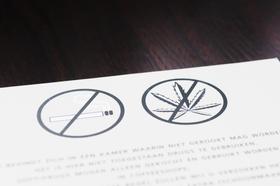We parents hold our breath as our children enter the teenage years. They face so many temptations. They cope with so much peer pressure. Popular culture bombards them with notions of what is acceptable and what's cool. What's a parent to do? Sometimes it seems as though we are swimming against the tide. A very strong tide.
Regardless of what pressures our teenagers face, our job as responsible parents is to teach our children that there will be consequences for their actions. Some consequences are positive. Others will be negative. For example, when our teenagers learn to drive, they are taught that it is illegal to run a red light. Or to drink and drive. Those consequences seem pretty obvious. Most teenagers, but not all, tend to obey those basic rules. That's the point. We try very hard to teach our teenagers that rules are there for a purpose. You perhaps many not agree with the reason for the rule. You do, however, have to be aware of the rules and obey them.
But what about the consequences our children might face for breaking the rules in a private school? You see, private and public schools are very different when it comes to discipline. The difference between public and private schools becomes even more noticeable when handling big issues such as substance abuse, among other disciplinary matters. Most private schools will have immediate consequences for infractions of the rules. Especially infractions of major rules. Why is that? Because of the way in which students are governed under the law in public and private schools. Students in public schools are entitled to various rights as specified in the public laws. Students in private schools are governed by the contract terms their parents have signed with the school. Contract law and constitutional law are two very different things.
The Center for Public Education weighs in with the following observation:
"The hurdles erected by the U. S. Constitution’s Fourth and Fifth Amendments are exclusive to the nation’s public schools. Private K-12 institutions have far more leeway to conduct unfettered investigations, withhold findings if they choose, and unceremoniously ask a student or faculty member to leave. Tuition and employment contracts rule private school relationships, while America’s social compact and legal contract (the Constitution) governs how public officials must act." -
Here is what you can expect to find at most private schools.
Break the rules. Face the music.
Put another way, if your child gets caught smoking pot or drinking on a private school campus, she will almost certainly be asked to leave the school. That's the polite way of saying, "She will be expelled." If you break the rules, you will face the music.
As if expulsion is not embarrassing enough, it creates a major blot on her academic records. Admissions officers at other schools will want to know what the reason was for her sudden departure from Exclusive Country Day School. You will also have to scramble to get her admitted to the local public school, where she could be exposed to even more temptations and inappropriate influences.
Infractions of the rules at a public school will almost certainly lead to a similar conclusion. The big difference is that there is something called due process in public schools. So the matter could drag on for weeks and months until resolved. That is because students have rights under the Constitution. One is presumed innocent until proven guilty, and so on.
Not so in private schools. You signed away your child's rights when you signed that contract with the school. Read the fine print. If she commits an infraction, she can and will be disciplined according to a published set of disciplinary standards. Those standards run from minor ones, such as having "lights on" after "lights out," to major ones, such as smoking pot in the dorms or drinking outside the field house.
These rules are carefully explained during orientation for all new students at the beginning of each new academic year. Her plaintive "But I didn't know, Daddy." is simply not true. The consequences of infractions of the school's rules are explained in exhaustive detail at most private schools. Furthermore, the rules are published in the school handbook and discussed on a regular basis. It is not a matter of schools wanting to be strict disciplinarians. It is more a matter of teaching young people a very important life lesson: break the rules, and you will face consequences.
Teaching ethics and morality are not lessons just for the classroom. Students are expected to put them into practice in their daily lives and interactions with the other members of the school community. Following the rules also makes the school community a safer place for all its members.
Discipline is not a matter of setting it and forgetting it.
I like The Hotchkiss School's phrase "A Constellation of Advisors". Literally, that is what each private school provides so that your children are guided by and reminded by adults who follow the rules. They as professionals, are obligated contractually to follow the rules for every student's protection and well-being. Following the rules in a private school is not a matter of a lecture or workshop at the beginning of school each fall. It is an ongoing mission that involves everybody in the community. Head of school, business manager, hockey coach - it does not matter what the staff position is, everybody teaches these very important life lessons.
Explain the consequences.
What should you as a parent do? Be vigilant. Support the school and affirm the school's Code of Conduct. If you disagree with it, have that discussion with the school administrators. Not with your child. If you truly cannot accept how the school is run, you need to find another school. That is always an option. Changing the way the school operates is not an option.
Have serious talks with your children about major issues such as drugs, booze, sex, and politics. Watch some of the excellent shows on the subject together. Discuss the issues they raise. Tons of parental interaction and love, and quality time are the proven antidote to most thoughts of deviating from acceptable behavior.
Most private schools have excellent awareness programs. They will not wait for their students to get into trouble. They proactively offer seminars and discussion groups so that even the most sheltered child will understand the risks involved with substance abuse and sexual activity. An ounce of prevention is worth a pound of cure.
Ultimately the responsibility for our children's actions resides with us, parents. As one of our Presidents used to say, "The buck stops here." Our teaching never stops. Setting the right example is something we have to do constantly. Children, after all, will listen to what we say; but more often than not, they will do as we do.
Questions? Contact us on Facebook. @privateschoolreview











